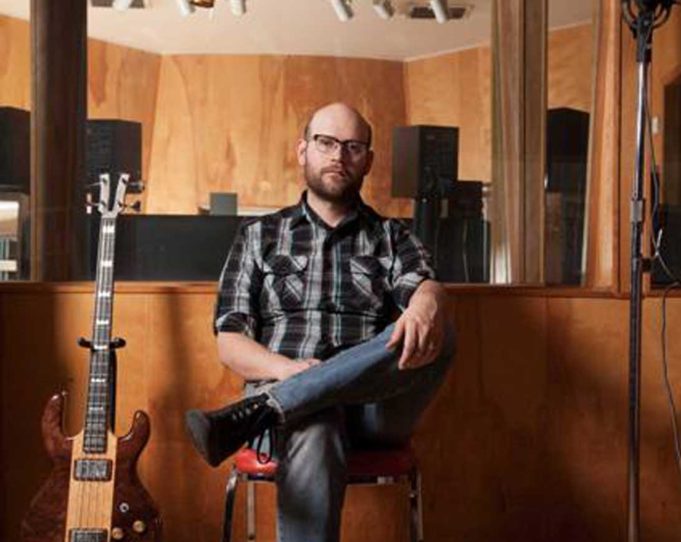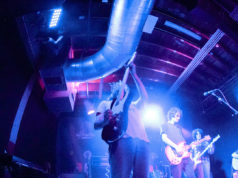A couple of weeks ago, Dreamy Life Records cofounder and Cloudland Recording Studio head honcho Britt Robisheaux posted a question on his personal Facebook page about pay-to-play schemes. “Booking agent question. I’ve seen a lot of bands, including some that I’ve worked with, trying to sell tickets for shows at local clubs due to pressure from the booking agent. Which booking agents are doing this and why? It seems like a pay to play-kinda thing, and I always advise bands not to play shows like this. I remember this being a thing in Deep Ellum in the ’90s, and I always avoided it. Is there something I’m missing?”
I wasn’t able to talk to Britt before I started writing this, but if I understand his post correctly, he’s talking about shows in which a promoter gives the scheduled bands stacks of tickets to peddle, with the understanding that the bands’ payout comes from the revenue generated from ticket sales rather than the day-of-show cover charge. These kinds of ticket-selling arrangements are great for clubs and promoters because they put most of the onus for the show’s success on the bands, and, truth be told, in a superficial, sensible-dad/hard-work-is-its-own-reward sort of logic, selling tickets to your own show ensures (or at least increases the likelihood) that there will be people watching you play. Playing devil’s advocate, I’ll even concede that if a band gets 100 percent of the proceeds from having to hawk its own tickets, then a club asking a band to go the extra mile isn’t that unreasonable. But that’s usually not the way the ol’ pre-sale trick works. In a lot of cases, you pay the club for the tickets up front, and then it’s up to you to make your money back. Case in point: my first band, Darth Vato, played the Viper Room in Los Angeles in 2004, and as I recall, we paid something like $300 for a stack of tickets and the privilege of playing a notorious dump on the Sunset Strip.
The Viper Room, as it happens, is dark, crummy, and kinda sleazy, and it holds about 250 people, many of whom look a lot like (or are) Tommy Lee. In a local context, it would be like if your band had to pay $300 to play Tomcats West or The Rail Club. I’ve never played at Tomcats West, and I do not know what their booking practices are, but in any case, I wouldn’t pay money to play any club around here. It’s frustrating enough that some clubs deduct their house costs from the door –– as a partner in a venue, (Main at South Side), I know that this is often unavoidable –– but expecting a band to cover a promoter’s fee before the doors to the show are even open is downright insulting.
For most local bands, however, making money is probably not the main objective, and I assume there is a subset that expects to be in the hole no matter what. So paying a club for tickets to sell won’t sound that nefarious or offensive to them. But if you do care about what you’re getting paid for playing a show, always be clear on what the house costs are. House costs usually mean the sound engineer, but they can also include security, room rental, the promoter’s fee, and pretty much anything else a venue doesn’t want to pay for out of pocket. In simple numbers, if the door is split 50/50 between the band and the house (a pretty yucky deal for bands, BTW), and the house cost is $500 (which sounds exorbitant to me), a show with a $10 cover needs 50 people through the door for the venue to have its expenses met. The bands start making money with the 51st guest. If it’s a three-band bill, have fun divvying up what’s left over. Hopefully none of the bands play ska.
That 50/50 split scenario is purely hypothetical, and, in my experience, most local venues offer revenue-sharing door deals that are more favorable to the bands. And if a club or promoter lets you keep the money from ticket sales without you having to fork over funds ahead of time, that’s not awful. Just beware of pay-to-play. And by “beware,” I mean, “Don’t do it.”













All clubs should have a guarantee for the bands, even if it’s only $50 !! Instead of thinking of a single night’s gross take, clubs should think long-term. Ensuring guarantees for bands illustrates a venue’s commitment to live music beyond just dollars & cents & engenders a positive vibe towards customers that lasts far longer than a single night’s show.
You’re a little harsh towards Tomcats West & the Rail Club. I’ve seen some pretty incredible shows at both venues
As have I, and I would rather go to those places than the Viper Room any day of the week. And like i said, I don’t know how their booking works; I was referring to te similarities in vibe and atmosphere.
“The Viper Room, as it happens, is dark, crummy, and kinda sleazy, and it holds about 250 people, many of whom look a lot like (or are) Tommy Lee. In a local context, it would be like if your band had to pay $300 to play Tomcats West or The Rail Club.”
LoL dude. The Rail is dark, but not really crummy and kinda sleazy. Pretty harsh.
The Rail pays out $8 per head after 10 heads.